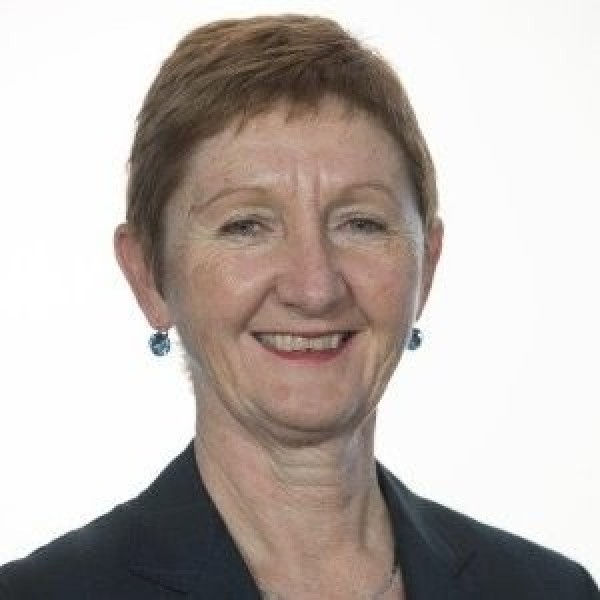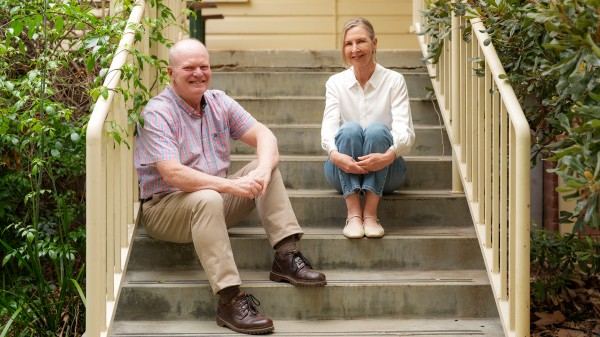Julianne Quaine

About Julianne
I’m a public servant at the Australian Government Department of Health in Canberra. My current role is to advise government on spending funds for medicines on the Pharmaceutical Benefits Scheme, prostheses (such as hip replacements) for coverage under private health insurance and new medical services and pathology tests accessible though Medicare. I’ve worked in many areas in health including leading the Ebola Response Taskforce, the National Immunisation Program, the Community Pharmacy Agreement and breast, cervical and bowel cancer screening. Prior to my current employment I worked in NSW Health services and hospitals in both rural and city areas as well as a few years at the NSW Health Department in North Sydney.
I started out with a BSc at ANU awarded in 1981 with majors in biochemistry and molecular genetics. Instead of going on to do honours I enrolled in a graduate diploma in Nutrition and Dietetics at the University of Sydney and started my first job as a clinical dietitian at St Vincent’s Hospital. A few years later I needed a change and completed a Master of Public Health at the University of Sydney in 1997 and then worked at the NSW Health as a public health officer trainee earning a graduate diploma in applied epidemiology. I worked as the director for public health in Broken Hill and then for Southern NSW, a job which brought me back to living in Canberra. I then decided after working at local and state levels the national level was worth a try and moved to the Australian Government Department of Health.
I grew up in Canberra and couldn’t wait to leave in 1981 but on returning on 2001 I found I really love it here. I’m a late convert to running and cycling and enjoy all the sporting opportunities Canberra has to offer. I’m close to retirement now and have recently started a BA at ANU studying French and history part-time as a transition from a busy working life.
Area of study
I started out with a BSc at ANU awarded in 1981 with majors in biochemistry and molecular genetics. Instead of going on to do honours I enrolled in a graduate diploma in Nutrition and Dietetics at the University of Sydney and started my first job as a clinical dietitian at St Vincent’s Hospital. A few years later I needed a change and completed a Master of Public Health at the University of Sydney in 1997 and then worked at the NSW Health as a public health officer trainee earning a graduate diploma in applied epidemiology.
Epic fail
My most epic fail? There’s so many things that can go wrong but it’s more important about how you deal with situations and what you learn. One day soon after becoming a branch head at the Department of Health I picked up the phone to discover that the Secretary’s office had directed a call to the Secretary (who was absent) from the head of the New Zealand Health Department who requested some assistance from Australia for supply of influenza vaccines. Later that afternoon the Secretary, who was a quite a fierce woman, went off her head at me over the phone as I was at least three levels down the food chain from her, on the temerity of taking a call from such an important person. My lesson was you can never manage up too early! And importantly you need to get over these things.
Proudest moment
My proudest moment is difficult to choose as I’ve had so many but a few would be: leading the Department of Health’s Ebola response team in 2014-15; rolling out the Human Papilloma Virus vaccination program for boys in 2012; finding a workable solution to failure in the bowel cancer screening program (fondly known as ‘poo in the post’) and the availability on the Pharmaceutical Benefits Scheme of antiviral treatments for hepatitis C for all hepatitis C infected persons in Australia at a cost of over $1B, a first in the world. On a personal note recently I is was asked to talk at the 50th anniversary of the teaching of Nutrition and Dietetics at the University of Sydney on the topic of where my career had taken me – I was quite chuffed with that invitation!
Top tip
My top tip is to think about your career in its broadest sense and don’t box yourself into one career path too early - take a range of job opportunities to broaden your skill base and learn what type of work you like best, after all we spend a lot of time at work. If you have any ambitions for the higher echelons get some management and people experience early on – leading even a small team can be confronting so develop those skills early if your aim is leadership at some stage.







